How to use the spread comparison tool (step-by-step)

Save $228 on our Trade Together program, paid for by our partner.
Learn MoreSave $228 on our Trade Together program, paid for by our partner.
Learn MoreUse the table below to see which broker has the lowest trading costs. By default we're showing EURUSD, GBPUSD and USDJPY. The results are based on 100 lots distributed evenly across these 3 pairs. Each brokers spreads are averaged over a trailing 7-day period. Commissions are also factored in as part of the overall trading costs.

A low spread in Forex refers to the difference between a currency pair's bid and ask prices. The spread, which is the smallest unit of price movement for a currency pair, is the primary source of revenue for Forex brokers. A low spread indicates that the difference between the bid and ask prices is narrow, which means the trader's trading costs are lower. Low Forex spreads are especially important for traders who trade frequently or in large volumes, because the spread can have a significant impact on their profits over time.
When selecting a Forex broker, it is critical to consider the spread size as well as other trading conditions such as execution speed, trading platforms, and educational resources. Choosing a low spread Forex broker allows traders to reduce trading costs while increasing profits in the Forex market.
Choosing the best low-spread Forex broker is a critical step for active traders who want to reduce trading costs while increasing profits. The spread, or the difference between the bid and ask prices for a currency pair, can have a significant impact on a trader's profits, so choosing a broker with competitive Forex spreads is critical.
In this article, we'll walk you through the process of selecting the best low-spread Forex broker.
The first step in selecting a low-spread Forex broker is to investigate and compare the spreads provided by various brokers. Use our handy spread comparison table for real-time data on the Forex brokers with the most competitive spreads. Furthermore, some websites and forums offer independent reviews and comparisons of Forex brokers, which can be a valuable resource for comparing the spreads offered by each broker.
Consider other trading conditions offered by each broker, such as execution speeds, available leverage, and the quality of the trading platform, should be considered in addition to the spread. Most brokers will offer MT4 or MT5 platforms with their trading accounts. These factors can also have a significant impact on a trader's profits and overall trading experience, so choosing a broker that provides favourable conditions in these areas is critical.
After you've narrowed down your list of potential brokers from our spread comparison tool, why not open a demo account with each of them? A demo account enables you to test the broker's trading platform and get a feel for their spreads and other trading conditions without putting any real money at risk. This can be a valuable opportunity to compare the trading conditions provided by each broker and determine which one is best suited to your requirements. Every trader is different.
Switch Markets stands out as a premier and regulated retail trading broker that offers easy access to various financial instruments, making it a one-stop-shop for all your trading needs. With a commitment to providing the best trading experience, Switch Markets offers traders tight spreads starting from 0 pips, commission-free accounts, and fast order execution at the best possible prices. The intuitive MT4 trading platform is available on desktop, web, and mobile devices, providing traders with seamless access to the markets.
The broker caters to all trading strategies by providing various trading account options, with a low minimum deposit of just $50 and convenient funding methods that come with no fees. Additionally, new clients can benefit from a free VPS, while existing traders have access to a range of helpful trading tools, educational resources, and round-the-clock multilingual support. Whether you are a beginner or a seasoned trader, Switch Markets' regulated environment and unparalleled trading conditions make it an ideal choice for anyone looking to trade with minimal fuss.
Pepperstone stands out as a leading trading broker, offering traders worldwide access to trade across all markets via powerful yet user-friendly platforms with cutting-edge technology, low costs, low-latency high-speed execution, and award-winning customer service. Pepperstone, has excellent trading conditions and customer support. The broker is particularly ideal for day trading, where low spreads are critical, and they rank high among my top choices for running automated strategies on the MetaTrader platforms.
Moreover, Pepperstone prides itself on its commitment to innovation, constantly pushing the boundaries to ensure traders get the best possible trading experience. Whether you are a beginner or a seasoned trader, Pepperstone provides a comprehensive range of trading tools, educational resources, and 24/7 multilingual support to help you achieve your trading goals. Overall, Pepperstone is an excellent choice for anyone looking for a reliable and top-performing trading broker.
IC Markets stands out as the world's largest true ECN trading broker that offers a vast range of trading instruments across multiple markets on the most popular trading platforms. With a commitment to providing unparalleled trading conditions, IC Markets gives traders access to low spreads starting from 0.0 pips and deep liquidity from a large mix of liquidity providers that ensures rapid trade execution speeds at the best possible prices at all times.
The broker is also regulated in multiple jurisdictions, providing traders with a reliable and secure trading environment. Moreover, IC Markets offers commission-free accounts, multiple account funding options, excellent customer support, and an extensive range of educational resources to help traders with their daily trading activities. As a long-time user of IC Markets, we can attest to their solid reputation and industry-leading conditions, making them an ideal choice for anyone looking for a reliable and comprehensive trading experience.






Stay up-to-date with the top brokers via our daily live streams with trading experts

Here are a few of the most frequently asked questions about broker spreads.
The spread in forex, also known as the bid-ask spread, is determined by the difference between the bid price and ask price of a currency pair. The bid price is the price at which a trader can sell a currency, while the ask price is the price at which a trader can buy a currency.
The forex pair with the lowest spread can vary depending on the broker and the current market conditions. However, some of the forex pairs that are known to have relatively low spreads across many brokers are:
EUR/USD - Euro/US Dollar
USD/JPY - US Dollar/Japanese Yen
AUD/USD - Australian Dollar/US Dollar
USD/CAD - US Dollar/Canadian Dollar
EUR/GBP - Euro/British Pound
It's important to note that the spread can vary from one broker to another, and it can also widen during times of high volatility or low liquidity. Therefore, it's essential to compare the spreads offered by different brokers and consider other factors such as trading fees, execution speed, and regulatory compliance before choosing a forex broker.
A broker commission is a fee charged by a broker for their services in facilitating a financial transaction. In the context of forex trading, broker commissions are the fees that a broker charges for executing a trade on behalf of a client.
Forex brokers can charge commission in different ways, including:
The commission fee is typically charged in addition to other trading costs, such as the bid-ask spread and rollover fees. It's important for traders to understand the commission structure of their broker and factor it into their trading strategy and profitability calculations.
Yes. There may be some brokers that offer low spreads, but it's important to consider other factors as well, such as trading fees, execution speed, and regulatory compliance. Brokers may also offer different spreads for different currency pairs, and spreads can vary depending on market conditions such as volatility and liquidity.
Traders should do their due diligence in researching and comparing different brokers to find one that best suits their trading needs and offers competitive pricing. It's also important to choose a broker that is regulated by a reputable financial authority to ensure the safety of funds and fair trading practices.
A zero-spread broker account is a type of forex trading account that offers zero or very low spreads on currency pairs.
In addition to basic forex trading tools such as charts, technical analysis indicators, and economic calendars, there are several other trading tools that can help traders make more informed decisions when trading forex.
It's important to choose tools that are suitable for your trading style and risk tolerance, and to use them in conjunction with sound trading principles and risk management strategies.
In partnership with our recommended partner
Wait!
